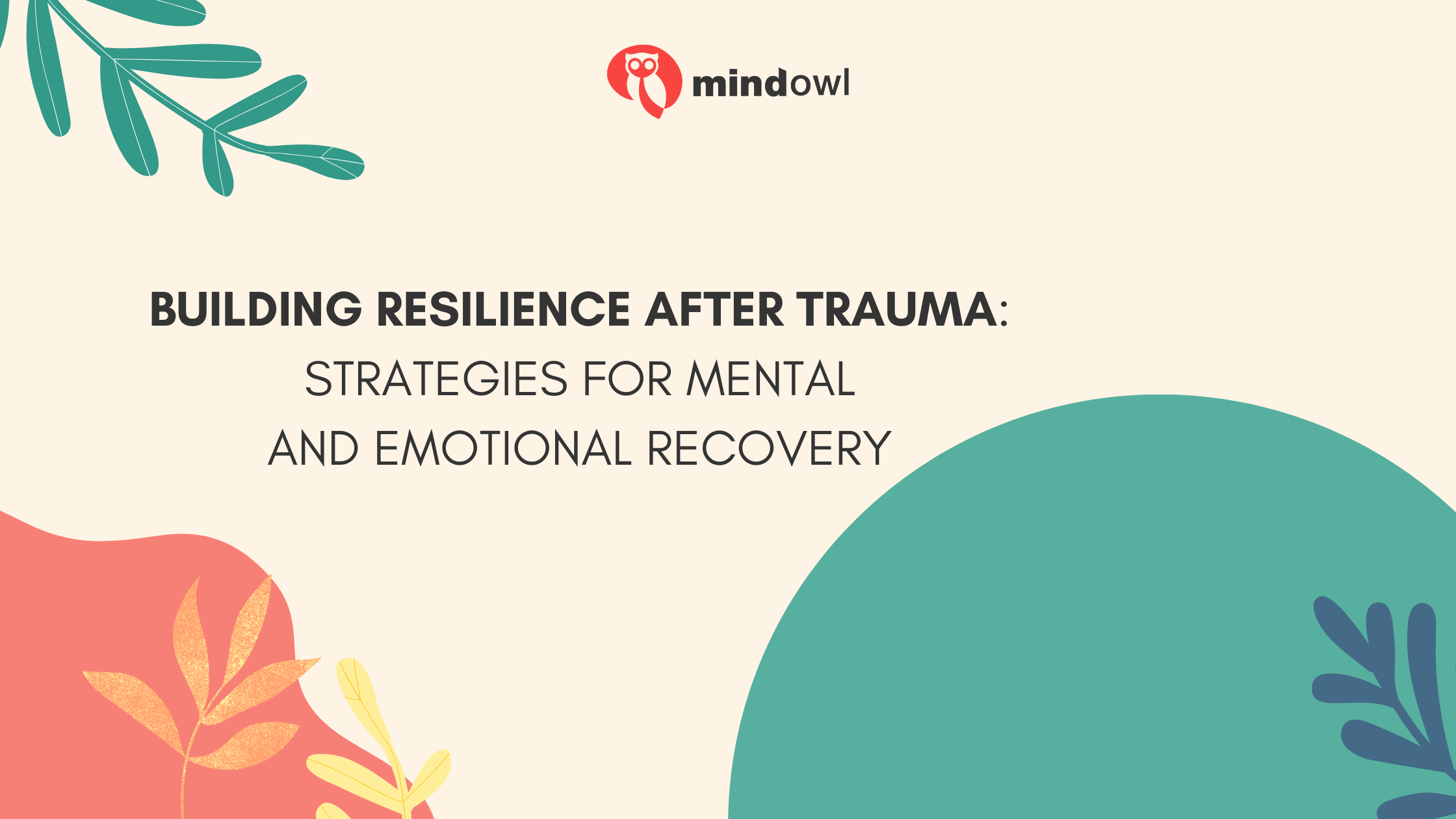Have you been through terrible situations that leave you feeling like life keeps throwing curveballs? It could have been an abuse or job loss, and getting back on your mental track seems so difficult. That’s the nature of trauma!
In this article, we will discuss the importance of building resilience after a traumatic experience and practical strategies for recovering from its aftermath.
Understanding Trauma
Trauma is used to describe humans’ emotional reactions to frightening and stressful experiences that are beyond control and leave a lasting impact on victims. Meanwhile, anyone can be a victim of a traumatic experience, whether you’re an adult or a teenager, and even a kid.
As a trauma survivor, you would find it challenging to forget about your traumatic experiences. This often results in an extended period of PTSD (Post Traumatic Stress Disorder), which is capable of destabilizing your mental and emotional well-being.

Effects of Trauma on Mental and Emotional Health
Since traumatic experiences differ, the intensity of their effects also differs. Some of the common things you will experience when traumatized include:
1. Thinking Alteration
When you find yourself having negative thoughts about yourself, other people, or the world at large because of certain issues, then trauma is taking a toll on you.
2. Loneliness and Disengagement
You may also struggle to socialize or associate with your relatives and friends. For instance, you can stop enjoying an activity you used to anticipate so much.
3. Emotional Numbness
Victims of trauma also tend to shut themselves off positive emotions. Oftentimes, they find it hard to feel or express love and be loved.
4. Emotional Hypersensitivity
Any past event that gets you easily frightened and always ready to attack has a traumatic effect on you. It could also be in the form of sudden aggressiveness and anger.
5. Flashbacks
You may find yourself having vivid uncontrollable thoughts and nightmares of the event that give the exact type of feeling you had during the actual occurrence.
6. Kids Acting Out
In the case of traumatized children, they could be found acting out the traumatic event through play.
7. Other Signs
Other signs of trauma include a feeling of shame, inability to sleep, depression, anxiety and living out self-destructive habits.
Why is it Important to Build Resilience After Trauma?
Building resilience after trauma is of utmost importance as it hastens your recovery from that traumatic experience. Building resilience will empower you to bounce out of the effects of trauma while launching you into a season of Post-Traumatic Growth (PTG).
Resilience also helps you cope better with the mental effects trauma may be having on you.
Strategies for Mental and Emotional Recovery from Trauma
Avoid Isolating Yourself
Not isolating yourself after a traumatic experience is an intentional decision you have to make. This will be helpful, especially in cases of molestation. Don’t be scared to open up to a trusted individual as soon as you can because this can help ease your pain.
Seek Legal Help
Seeking justice during a traumatic recovery can also give you a sense of safety, validation and empowerment. For instance, if you reside in the United States where most traumatic experiences are from road accidents, seeking help from personal injury lawyers can get you justice and proper compensation. This will boost your confidence level and restore inner strength.
Explore Therapeutic Exercises
Therapeutic exercises will help stay focused on the present moment when the thought of a traumatic event wants to get you overwhelmed or anxious. Examples of such exercises include yoga, dancing, meditation, journaling, music and mindfulness.
Take Care of Your Health
Ensure to inculcate a healthy lifestyle during this journey of recovery. Establish healthy routines that promote an all-round sound health.
Pay Attention to Your Mind and Body
Paying attention to your mind involves doing things that your body demands per-time to boost your mood. Take a warm bath when your body requests it. Sleep as often as required. See a movie when your mind tells you to. Just give yourself a treat as often as needed.
Stay Away From Drugs
Alcohol and drug substances will only take away the stress for a short while. Once the effect of the substance is no longer there, the stress and memories start hunting you again. The safest thing is not to consider drugs as a solution for fighting trauma, it will instead lead to addiction and more health complications.
Go Back to Your Pre-Trauma Routines
Trauma has a way of disrupting every area of your life. Tracing your steps back to the things you used to do will help you regain your stability fast.
The Recovery Process Can’t be Rushed
Avoid rushing the process and be true to yourself to stay sane. While setbacks are inevitable, you should not try to skip any of the recovery stages.
Conclusion
Undoubtedly, trauma leaves a lasting impact on its victims, but no one deserves to go through it alone. The effects of trauma discussed in this article are the various ways by which traumatic experiences affect individuals’ emotional and mental stability.
You can make the bold step of building resilience; a sure means of turning your PTSD to PTG. This also guarantees a fast recovery process.
The strategies provided are just a means to an end. Seeking legal help, avoiding isolation, and staying healthy and active are all practical ways to build resilience after trauma. As long as you keep up with positivity, success is possible!
MindOwl Founder – My own struggles in life have led me to this path of understanding the human condition. I graduated with a bachelor’s degree in philosophy before completing a master’s degree in psychology at Regent’s University London. I then completed a postgraduate diploma in philosophical counselling before being trained in ACT (Acceptance and commitment therapy).
I’ve spent the last eight years studying the encounter of meditative practices with modern psychology.

